From Redundancy to Recognition: Will’s Journey with Burgervore and ADHD Advocacy
An interview with Will, founder of Burgervore, about building a successful food business, his ADHD diagnosis, and championing neurodiversity in hospitality.
How did you get into hospitality and what inspired you to set up Burgervore?
I wasn’t always in food – I was an accountant by trade up until 2021. I was having a tough time at work and had fallen out of love with what I was doing. I’d had the idea to start a food business but never jumped into it. Then, during a family holiday with my wife, we started discussing it seriously and the very next day – and I mean literally the next day – I got pulled into a meeting and was made redundant. I just thought, “right, now’s the time to do it.”
The timing was actually perfect because I retained some freelance work with the company that made me redundant, so I had regular income dripping through the week as a safety net.
Tell us about those early days starting Burgervore
I started in July 2021. I took out a personal loan and bought a second-hand trailer – it was previously a vegan kebab van in a rendezvous at the Black Cat Roundabout. I did all the branding, menu development, food registration, and registered with NCASS myself.
I had no idea what would happen when I started trading at a local pub. I advertised among friends and the feedback was really good. I worked out the local area and where I could trade, spreading out around Buckinghamshire. By September, I’d found a niche working with local pubs.
The demand was incredible. We live in quite a rural area where Just Eat doesn’t have much presence – maybe 2 or 3 basic food options, so there was real demand for our offering and the residents got right behind it. We were doing 100 covers on a Thursday night!
You achieved remarkable success very quickly. Tell us about the awards.
Within six months, I entered the National Burger Awards and made it to the final 16, going up against brands I’d used as inspiration. We won and finished in the top eight of our category. That really opened some doors.
Last year was particularly good. We got a second unit on the road and made it to the National Burger Awards final – the champions of champions event featuring the best burgers of the last decade. We also won the BSFA regional southeast heats and finished second at the final in London, winning the best burger category. The recognition has been amazing.
What’s your approach to ingredients and local sourcing?
I’m passionate about championing local ingredients. We exclusively use a local butcher for our beef and get our bread from a local bakery. These are specialists in their own domain, so it made no sense to go to big corporations when I could explore the options on my doorstep.
We work with Culture Bakery – they do 24-hour fermented sourdough brioche and are involved in a prison scheme where prisoners make sourdough bread. Our cheesemonger specialises in sustainable British cheese. The guy who runs the shop is a world cheese judge and travels the country sourcing British cheeses. One of our burgers uses British-style raclette, and our cheesy chips feature proper British cheeses, not rubbery cheddar.
You’ve been open about your ADHD diagnosis. Can you tell us about that journey?
I’d struggled with low mood and anxiety that had breached into depression. In previous roles, I’d bounced around different jobs – nothing engaged or excited me. When I started Burgervore, the novelty in the early days was new and exciting, which stimulated me quite well.
But by 2024, after a busy year with competitions and obligations, I was running on stress rather than dopamine. My body was waiting for adrenaline all the time. In December 2024, I mentally broke down – I didn’t recognise my family and was hallucinating. I was in a bad state.
My wife’s sister had been diagnosed with ADHD, and during a conversation about symptoms, it struck my wife that what she was describing, she saw in me. I got a private diagnosis and discovered I had ADHD combined type – I had no idea. It transpired that what I’d experienced was ADHD burnout.
How has understanding your ADHD changed your approach to business?
Learning about ADHD was a eureka moment. There are four things that help you get through the day with ADHD: novelty, interest, challenge, and urgency. I’d had novelty and interest in the beginning, but by year three, the business had grown into something different with different stresses, staff issues, and long days.
I started coaching with someone who helps business owners with ADHD. It helped me understand what I was and wasn’t capable of. I’m approaching business differently this year – removing high stress situations and finding a community of people I didn’t know I needed.
How did you become an ADHD UK ambassador?
I went to my MP to try to effect change in Buckinghamshire around ADHD support. The NHS services had no funding left for ADHD – they can only diagnose something like 26 people on waiting lists in the thousands. It cost me £300 to get diagnosed privately and £500 to access medication with ongoing prescription charges of £150pm. There will be annual review charges as well. All of which is unsustainable for me and should be available on the NHS.
Henry Shelford, CEO of ADHD UK, invited me to meet with him. He speaks in government debates and invited me to become an ambassador for his charity. It gives me the chance to champion neurodiversity in hospitality and help create work environments where people can prosper.
You’ve mentioned that neurodiversity affects 1 in 2 people working in hospitality. Why is this important?
The hospitality industry naturally attracts neurodivergent people, but it’s very misunderstood. People with ADHD can be incredibly creative and talented – you just need to give them the right platform.
I have a lad who works for me who might come across as rude, but he soaks up information like a sponge. He’s an amazing colleague who can be left to run service because he knows how everything should work and can problem-solve on the spot.
We need to be more open to the neurodiverse community and work in ways that champion these traits. People with ADHD often have higher levels of rejection sensitivity, but they also bring great creativity. It’s about understanding how to get the best out of everyone.
What’s the biggest challenge facing the hospitality industry?
VAT is a massive issue. When you’re VAT registered, 20% of your turnover has to go to the government with no offset. For high-quality items, the cost price is higher, so at what point does a person say that burger is too expensive?
The current threshold is £90k, but it should be £150k for hospitality. It’s a challenge to get enough out of the business to maintain that threshold. Small independent businesses need support – people have got to eat three times a day, and this is an industry that, with support, is going to flourish.
Why should people choose independent businesses over big corporations?
You can ask us straight off the cuff where our food came from and get the story of the person who produced it. Everyone in this industry has food they take massive pride in. You’re going to learn about different cultures and what inspired them to start – often handed-down recipes they wanted to showcase.
The independent food scene is incredibly supportive. Everyone’s always welcome for a chat, and no one is secretive about their success. We help each other out at events and share work when we can’t fulfil bookings ourselves.
What does the future hold for Burgervore?
We’re continuing to grow while maintaining our focus on quality and local sourcing. I’m also committed to my role as an ADHD ambassador, raising awareness and trying to make the industry more inclusive for neurodivergent people.
We’re doing fundraising through branded Burgervore tees to create designs that start conversations about ADHD. It’s about education and helping people understand that thinking differently isn’t a bad thing – it’s actually a strength that can bring incredible value to hospitality.
The industry has a high dependency on alcohol and drug use, often because people don’t know they have ADHD and are self-medicating. With a bit of awareness, we can look after each other better and create environments where everyone can thrive.
For more information about ADHD support and resources, visit the ADHD UK website.
To find out more about Burgervore, give them a follow on Facebook, Instagram and have a look at their Website
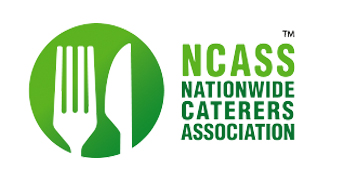

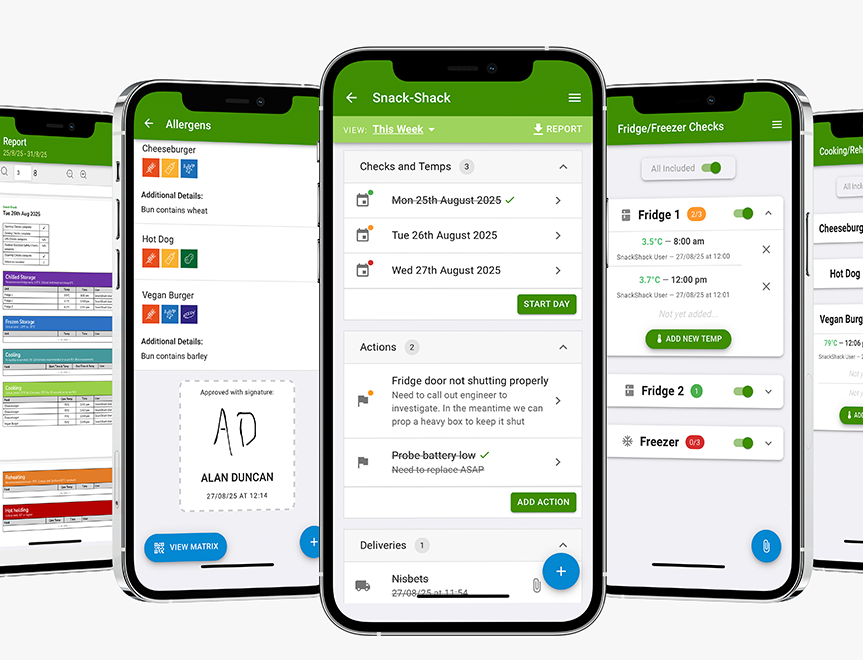

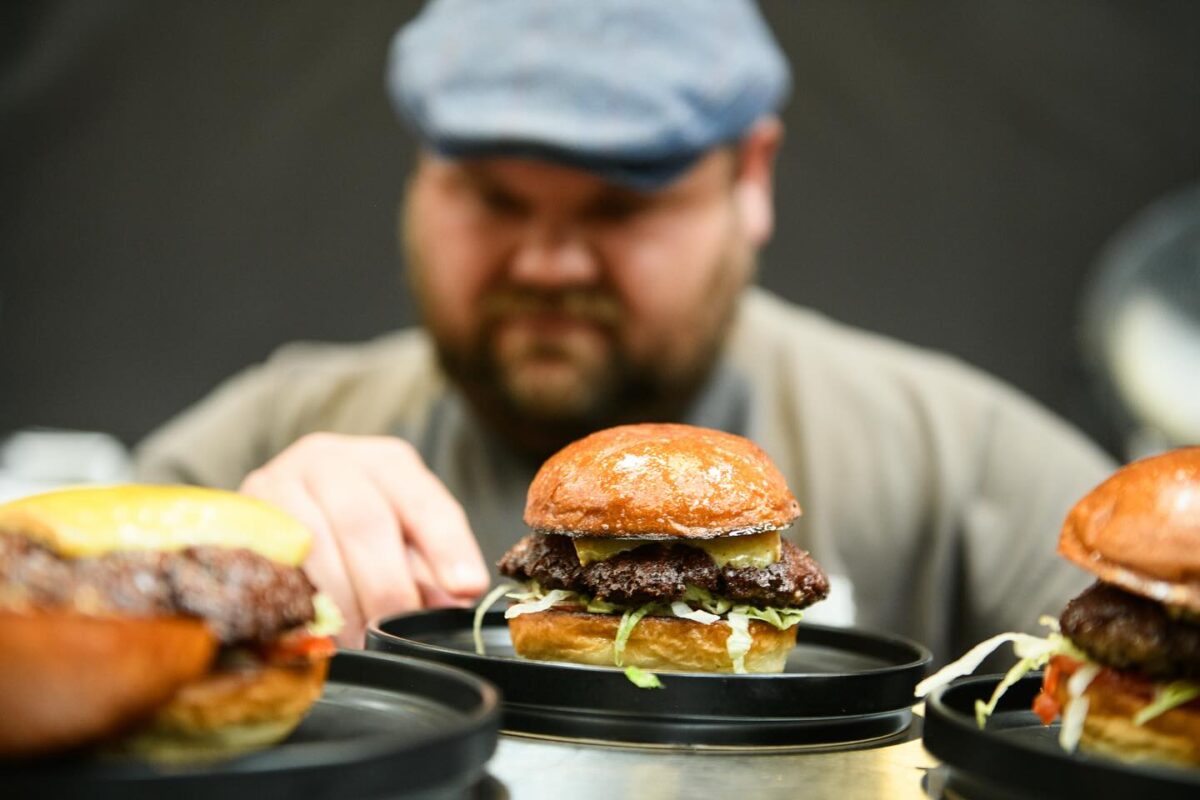
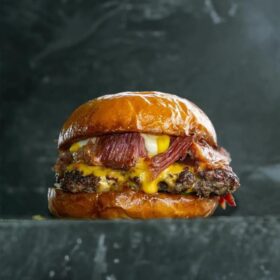


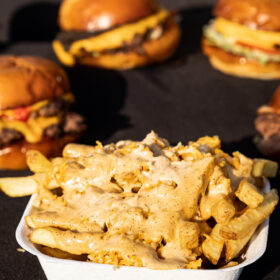


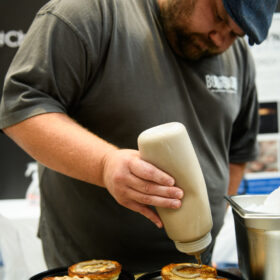
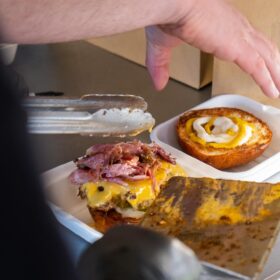
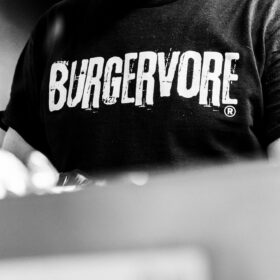

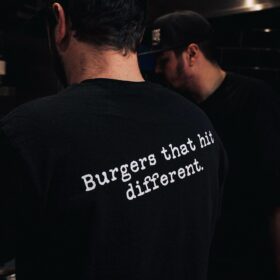


 Featured Training
Featured Training
OUR MEMBERSHIP
We're here to help make your catering business a success. Whether that be starting up or getting on top of your compliance and marketing. We're here to help you succeed.
Want our latest content?
Subscribe to our mailing list and get weekly insights, resources and articles for free
Get the emails